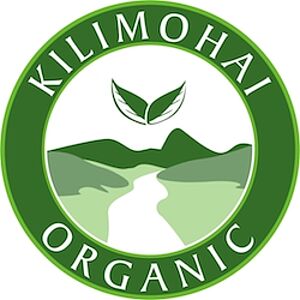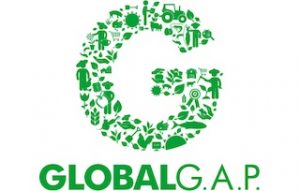
Organic certification scheme (EU Compliance)
Africert is accredited for EU organic certification for Categories:
- A -Grower Group: Unprocessed plants and plant products, including seeds and other plant reproductive material
- A -Individual: Unprocessed plants and plant products, including seeds and other plant reproductive material
- D -Processed agricultural products, including aquaculture products, for use as food.
Our accreditation scope covers the following countries-
Burundi, Cote D’Ivoire, Egypt, Ethiopia, Ghana, Ivory Coast, Kenya, Madagascar, Malawi, Morocco, Mozambique, Nigeria, Rwanda, South Africa, Tanzania, Tunisia, Uganda
The accreditation focuses on the EU organic certification requirements which are defined in the EC regulations number 2018/848 and its secondary acts. With this, AfriCert hopes to serve farmers better and more closely to meet the ever-growing demand for organic production.
Find here :
EU Regulation 2018/848 and its secondary acts are available here

East Africa Organic Product Standard KS EAS 456:2019
Africert is approved by Kenya Organic Agriculture Network (KOAN) to conduct audits against EAOPS EAS 456:2019
This standard is identical with and has been reproduced from EAS 456, Organic production standard, published by East African Community (EAC). The East African organic product standard (EAOPS) was written for organic production in East Africa and has been adapted to conditions in East Africa. This EAOPS has been based on organic standards currently in place in the region as well as the IFOAM Basic Standards and the Codex Alimentarius guidelines for the production, processing, labeling and marketing of organically produced foods. The standard is intended for the development of organic production and trade in the East African region. The standard provides the platform for a common label for organic products in East Africa and for developing consumer trust. The standard also formulates standpoints that can be used in standards. Further, it can be a basis for equivalence agreements with other countries and regions. Producers that follow the East African organic products standard and that are verified by recognized systems can get the right to use the East African Organic Mark (Kilimo Hai logo) hereafter abbreviated as EAOM. The EAOM is a Market promotion logo and aims at facilitating marketing of organic products in the five East African Countries and enhancing regional trade.
Find here :
The Rainforest Alliance 2020 Sustainable Agriculture Standard
The Rainforest Alliance works to conserve biodiversity and ensure sustainable livelihoods by transforming land-use practices, business practices, and consumer behavior
Rainforest Alliance works with farmers to ensure compliance with the RA standards for protecting wildlife, wild lands, workers’ rights, and local communities. Farms that meet these rigorous standards are awarded the Rainforest Alliance Certified seal.
Applicants are audited and certified against the following Rainforest Alliance 2020 Sustainable Agriculture Standard:
- Farm Requirements
- Supply Chain requirements
GlobalG.A.P. – fruits and Vegetables
What is GLOBALG.A.P.?
The challenge of globalising markets is nowhere greater than in the primary food sector. GLOBALG.A.P. (formerly known as EUREPGAP) has established itself as a key reference for Good Agricultural Practices (GAP) in the global marketplace, by translating consumer requirements into agricultural production in a rapidly growing list of countries – currently more than 80 on every continent.
- GLOBALG.A.P. is a private sector body that sets voluntary standards for the certification of agricultural products around the globe. The aim is to establish ONE standard for Good Agricultural Practice (G.A.P.) with different product applications capable of fitting to the whole of global agriculture.
- GLOBALG.A.P.is a pre-farm-gate standard, which means that the certificate covers the process of the certified product from farm inputs like feed or seedlings and all the farming activities until the product leaves the farm. GLOBALG.A.P.is a business-to-business label and is therefore not directly visible to consumers.
- GLOBALG.A.P.certification is carried out by more than 100 independent and accredited certification bodies in more than 80 countries. It is open to all producers worldwide.
- GLOBALG.A.P. includes annual inspections of the producers and additional unannounced inspections.
- GLOBALG.A.P.consists of a set of normative documents. These documents cover the GLOBALG.A.P.General Regulations, the GLOBALG.A.P. control points, compliance criteria, and the GLOBALG.A.P.Checklist.
As many other on-farm assurance systems have been in place for some time prior to the existence of GLOBALG.A.P., a way had to be found to encourage the development of regionally adjusted management systems and so to prevent farmers from having to undergo multiple audits. Existing national or regional farm assurance schemes that have successfully completed their benchmarking process are recognised as an equivalent to GLOBALG.A.P..
The GLOBALG.A.P. standard is subjected to a revision of continuous improvement to take into account technological and market developments.
GlobalG.A.P. Chain of Custody (CoC) version 6.1 for November 2022.
CoC certification safeguards transparency along supply chains, reduces the risk of food fraud, and enables a quick response if problems arise. This adds value to your brand in the market and provides reassurance to your customers.
We are accredited to offer GLOBALG.A.P chain of custody certification services. GLOBALG.A.P. Chain of Custody (CoC) allows supply chain stakeholders to demonstrate management systems that protect the segregation, identification, and traceability of products originating from GLOBALG.A.P. certified production processes. This way, products produced in line with safe, socially and environmentally responsible farming practices can be connected with a GLOBALG.A.P. claim at the end of the chain – reducing integrity risks, providing reassurance to customers, and adding value to a brand in the market. Applicable to products originating from production processes certified to Integrated Farm Assurance (IFA) or Compound Feed Manufacturing (CFM), CoC is tried, tested, and trusted around the world, with certificate holders operating in over 50 countries
4C – Common Code for Coffee Community – A global association
1) Within the 4C Services, coffee producers, exporters, trade and industry and civil society from around the world work together for more sustainability in the entire coffee sector. 2) This global community has joined forces to continuously improve the social, environmental and economic conditions for the people making their living with coffee. 3) Main pillars of 4C are a code of conduct, rules of participation for trade and industry, support mechanisms for coffee farmers, a certification system and the participatory governance structure. 4) The 4C Code of Conduct applies to any type of producing entity (4C Units) based in any coffee producing country that wish to produce and sell coffee as 4C Compliant. 5) The term 4C Unit is very inclusive and covers any type of production facility and/or process: it can be a group of small producers, a cooperative or a farmers’ association, local trader, a mill, or an export organization A 4C Unit can be established at any stage of the coffee supply chain with two basic pre-requisites:
-Production volume: minimum of 20 tons (or one container) of green coffee
-Management capacity: a person/ group of persons managing the 4C Unit to implement the 4C Code of Conduct.
The 4C Certification System
The 4C Certification System aims at helping entities to be audited (4C Units) to know where they are with regard to the 4C Code of Conduct implementation and keep the momentum on the continuous improvement path. The 4C audit service is performed by professional independent third-party auditor companies approved by the 4C Services

The Union for Ethical Biotrade (UEBT)
The Union for Ethical Biotrade (UEBT) certification label is awarded to companies that meet the criteria of the Ethical BioTrade Standard. They join a growing movement of brands committed to ethical sourcing of ingredients from biodiversity.UEBT and the Rainforest Alliance have developed a joint Herbs & Spices Programme. All ingredients certified under this new programme will be able to carry the Rainforest Alliance certification seal. With this partnership, UEBT builds on the positive track record of the UEBT/UTZ cooperation in herbal tea, the decades-long experience of the Rainforest Alliance and UTZ in sustainable agriculture certification and UEBT’s expert knowledge of ethical sourcing of ingredients from biodiversity, including those ingredients collected from the wild.



